LANGUAGES SPOKEN IN ISRAEL
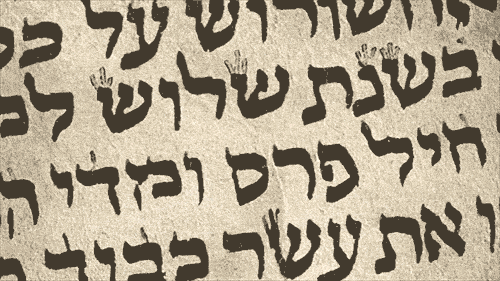
https://24x7offshoring.com/
http://24x7outsourcing.com/
Languages spoken in Israel:
Israel is a country known for its rich cultural heritage and diverse population. This diversity is reflected in the linguistic landscape, with various languages spoken across the nation. In this article, we will explore the languages spoken in Israel, highlighting the significance of Hebrew, Arabic, and other minority languages that contribute to the country’s linguistic tapestry.
- Hebrew: Hebrew is the official language of Israel and holds great cultural and historical significance. It is the native language of the Jewish population and serves as the primary language of communication in all aspects of daily life, including education, government, media, and business. Hebrew is also the language of religious texts, connecting the Israeli people to their ancient roots and identity.
- Arabic: Arabic is the second official language of Israel and holds a prominent place in the country’s linguistic landscape. It is primarily spoken by the Arab population, which includes Palestinians, Arab citizens of Israel, and other Arabic-speaking communities. Arabic is an integral part of Arab cultural and social life, with its own dialects and variations.
- English: English is widely spoken and understood in Israel, serving as a common language for communication between different language communities. It is taught in schools and used extensively in business, tourism, and international relations. English proficiency is high among the Israeli population, especially among the younger generations, due to its global importance and the influence of Western culture.
- Russian: Russian is one of the most widely spoken languages among immigrant communities in Israel. Following waves of immigration from the former Soviet Union, Russian became a prevalent language, particularly among older generations. Many Russian-speaking Israelis maintain their language and cultural traditions, contributing to Israel’s multicultural fabric.
- Amharic: Amharic is spoken by the Ethiopian Jewish community in Israel, known as the Beta Israel or Ethiopian Jews. It is a Semitic language with its own unique script and rich cultural heritage. Amharic serves as a connection to the community’s Ethiopian roots and is often used within family and community settings.
- Other Minority Languages: Israel is also home to various other minority languages spoken by specific communities. These include Yiddish, Ladino (Judeo-Spanish), French, German, Polish, and others. These languages reflect the diverse backgrounds of immigrant populations who have made Israel their home, carrying their linguistic and cultural heritage with them.
- Significance of Multilingualism: The linguistic diversity in Israel contributes to a vibrant multicultural society, fostering intercultural understanding and appreciation. Multilingualism allows for cross-cultural communication, facilitates social integration, and strengthens the connections between different communities. It also serves as a reminder of the diverse historical and contemporary influences that shape Israeli society.
Numerous ethnic gatherings are living in Israel. Israel is situated in the Middle East.
It is a little size territory with a populace of about 8.9 million individuals. Numerous individuals from various societies moved to Israel and the collaboration of various nationalities brought about the development of various dialects.
According to the Israel Central Bureau of Statistics,49% of the populace speaks Hebrew, 15% Russian, 18% Arabic, 20% French, 2% English, and 1.6 % Spanish. Different dialects that are spoken in Israel are 10%. At present English language is educated in schools so Israelis can speak with the worldwide world without any problem.
Significant languages spoken in Israel
Israel is a country renowned for its cultural diversity, a melting pot of people from various backgrounds and linguistic traditions. This linguistic richness is reflected in the significant languages spoken in Israel. In this article, we will explore some of the prominent languages spoken in the country and delve into their historical, cultural, and social significance.
- Hebrew: Hebrew holds immense significance as the official and national language of Israel. It serves as the primary language of communication, education, and administration. Hebrew has deep historical roots, dating back to ancient times, and is regarded as the language of the Jewish people. Its revival as a spoken language in the late 19th century played a pivotal role in the establishment of the modern State of Israel. Hebrew unifies the diverse Jewish population and serves as a symbol of cultural identity and national pride.
- Arabic: Arabic is another important language spoken in Israel. It is an official language alongside Hebrew and holds historical and cultural significance for the Arab population. Arabic is spoken by Arab citizens of Israel, Palestinians, and other Arabic-speaking communities. It plays a vital role in Arab cultural expression, literature, music, and religious practices. Arabic is widely used in everyday interactions, including media, business, and government institutions.
- English: English is widely spoken and understood in Israel and holds a crucial role as a lingua franca. It is taught in schools, used in higher education, and employed in international business and diplomacy. English proficiency is high among the Israeli population, particularly among the younger generations. The influence of English in Israeli society can be attributed to its status as a global language and the impact of Western culture.
- Russian: Russian is a significant language spoken in Israel due to waves of immigration from the former Soviet Union. Many Russian-speaking Israelis maintain their language and cultural traditions, creating a vibrant Russian-speaking community. Russian has left its mark on various aspects of Israeli society, including literature, media, and entertainment. It is still widely spoken, particularly among older generations, and plays a role in preserving cultural heritage.
- Amharic: Amharic is spoken by the Ethiopian Jewish community in Israel, known as the Beta Israel or Ethiopian Jews. It is a Semitic language with its own unique script. Amharic serves as a connection to the community’s Ethiopian roots, culture, and religious practices. While Hebrew is the dominant language for public communication, Amharic is spoken within the community and serves as a means of preserving heritage and fostering a sense of belonging.
- Other Minority Languages: Israel is home to diverse immigrant communities, each bringing their languages and cultural traditions. Yiddish, Ladino (Judeo-Spanish), French, German, Polish, and other languages are spoken by specific communities, representing their respective historical and cultural backgrounds. These languages often serve as a means of cultural preservation, maintaining strong ties to ancestral roots while integrating into Israeli society.
According to the 21st version of Ethnologue, there are 34 dialects spoken in Israel. Out of these dialects, 15 dialects are non-native and 19 are native.
The authority dialects of Israel are Hebrew and Arabic. Both of these dialects are spoken by the regular populace of Israel. Hebrew is instructed by Arab instructors in school and the Arabic language is spoken by minorities of the area. English was before the authority language of Israel. Yet, with time, the English language lost its importance somewhat.
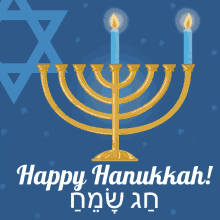
languages Spoken In Israel
Israel is a fascinating country known for its cultural diversity and historical significance. As a melting pot of different ethnicities and backgrounds, Israel is home to a multitude of languages. In this article, we will explore the languages spoken in Israel, showcasing the linguistic richness that characterizes this vibrant nation.
- Hebrew: Hebrew stands as the official language of Israel and holds immense cultural and historical importance. It is the language of the Jewish people and serves as a powerful symbol of Jewish identity. Hebrew has a rich biblical heritage and experienced a revival in the late 19th century, ultimately becoming the lingua franca of the Jewish population. Today, it is spoken by the majority of Israelis and is the primary language of education, administration, media, and everyday communication.
- Arabic: Arabic is another significant language spoken in Israel. As an official language alongside Hebrew, Arabic is predominantly spoken by the Arab population in the country. It holds a prominent role in Arab culture, literature, and religious practices. Arabic is widely used in Palestinian communities, Arab institutions, and media outlets, playing a vital role in preserving cultural identity and fostering communication within the Arab-Israeli community.
- English: English enjoys widespread usage in Israel and is considered a vital secondary language. It is taught in schools, used in higher education, and serves as a lingua franca for intercultural communication. English proficiency is high among the Israeli population, particularly the younger generations who have been exposed to global influences and Western media. English is utilized in business, technology, and international relations, facilitating interaction with the global community.
- Russian: Russian is a prevalent language in Israel due to significant waves of immigration from the former Soviet Union. It is spoken by a substantial portion of the population, particularly among older generations. Russian has had a lasting impact on Israeli society, influencing cultural expressions, literature, music, and entertainment. Russian-speaking Israelis maintain their language and cultural traditions, contributing to the country’s multicultural fabric.
- Amharic: Amharic is spoken by the Ethiopian Jewish community in Israel, known as the Beta Israel or Ethiopian Jews. It holds immense significance as a connection to their Ethiopian roots, culture, and religious practices. While Hebrew is the primary language for public communication, Amharic is spoken within the community, fostering a sense of identity and preserving their unique heritage.
- Other Minority Languages: Israel is a mosaic of diverse immigrant communities, each bringing their languages and cultural traditions. Yiddish, Ladino (Judeo-Spanish), French, German, Polish, and various other languages are spoken by specific communities, representing their historical and cultural backgrounds. These languages are often used within the community and contribute to the cultural preservation and enrichment of Israel’s multicultural landscape.
There are a plenty of languages spoken in Israel. How about we examine the quantity of dialects that are utilized in Israel.
Hebrew
Hebrew is the ordinary communicating in language of Israel.
This language was resuscitated following 150 years, and individuals thought of it as a wonder. The restoration of Hebrew was difficult and it confronted resistance from different dialects, primarily from Yiddish to turn into a urgent language of the Zionist task.
It is additionally considered as the language of a strict faction called Judaism. Middle Easterner schools in Israel encourage the Hebrew language to the kids until they arrive at the 3rd grade. Israeli youngsters need to finish the Hebrew test to get enlisted.
The more established adaptation of Hebrew has taken many advance words from different dialects like Arabic, Latin, and Greek Persian, and numerous different dialects like Akkadian and Canaanite dialects.
The type of Hebrew that is utilized today is impelled as the scriptural language and its contents follow old Hebrew composed structure. The phonation of Modern Hebrew is a reexamined structure made on the Sephardic (Hispano-Portuguese) articulation.
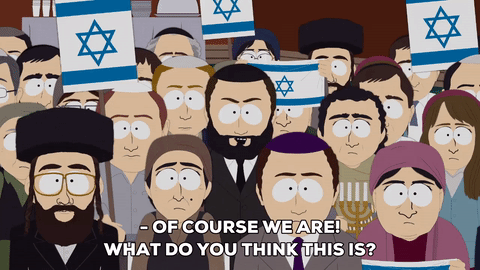
Arabic
Arabic is the second authority language spoken in Israel.
It is spoken by 20% of the all-out populace of Israel that incorporates Arab residents of Israel and Jewish individuals from the Arab world. There is a significant lingo of Arab language which is called Levantine Arabic and it is spoken by numerous Israeli Arabs.
The Arabic vernacular that is spoken in Israel is like Bedouin Arabic tongue and Palestinian Arabic. In the Northern piece of Israel, the Lebanese Arabic vernacular is spoken by Druze and Arabs. The more seasoned age of Jews known as Mizrahi Jews communicates in Judeo-Arabic dialects.
Russian
Albeit Russian isn’t the authority language of Israel. Because of the movement of Russian Jews, it is spoken by 20% of Israelis. Russian is viewed as a significant language in Israel, and a nearby TV station in Israel is working in the Russian language.
10 Languages Spoken In Israel
Israel is a diverse and multicultural country with a rich tapestry of languages spoken by its inhabitants. From ancient and historical languages to modern tongues brought by immigrant communities, Israel showcases a remarkable linguistic melting pot. In this article, we will explore ten languages spoken in Israel, highlighting their significance and contributions to the country’s linguistic landscape.
- Hebrew: Hebrew holds a central position as the official language of Israel. It is the native language of the Jewish population and carries deep historical and cultural significance. Hebrew has evolved from its ancient roots and serves as a unifying force among Israelis, connecting them to their religious and cultural heritage.
- Arabic: Arabic is another significant language spoken in Israel, primarily by the Arab population. As an official language alongside Hebrew, it reflects the cultural identity of Arab citizens of Israel, Palestinians, and other Arabic-speaking communities. Arabic plays a vital role in Arab literature, music, religious practices, and everyday communication.
- English: English is widely spoken and understood in Israel. It serves as a lingua franca for communication among different language communities, and its proficiency is high across the country. English is taught in schools, used in higher education, and widely employed in business, tourism, and international relations.
- Russian: Russian is spoken by a substantial portion of the population in Israel, primarily due to immigration from the former Soviet Union. Russian-speaking Israelis maintain their language and cultural traditions, contributing to the multicultural fabric of the country. Russian has left its mark on Israeli society through literature, media, and various cultural expressions.
- Amharic: Amharic is spoken by the Ethiopian Jewish community in Israel, known as the Beta Israel or Ethiopian Jews. It holds deep cultural and religious significance, serving as a connection to their Ethiopian roots. Amharic is used within the community for communication, religious ceremonies, and cultural preservation.
- French: French has a notable presence in Israel, primarily due to immigration from French-speaking countries. It is spoken by French-Israelis and Jewish communities from Francophone nations. French serves as a means of communication within these communities and contributes to the multicultural and linguistic diversity of Israel.
- Spanish: Spanish is spoken by Sephardic Jews in Israel, whose ancestors originated from Spanish-speaking countries. The preservation of Ladino, a Judeo-Spanish language, is a testament to the historical connection between Spanish-speaking Jews and Israel. Ladino represents an important cultural heritage and is still spoken within specific communities.
- Yiddish: Yiddish, a language with roots in Central and Eastern Europe, is spoken by Ashkenazi Jews in Israel. Yiddish serves as a symbol of Ashkenazi Jewish cultural identity and heritage. While its usage has decreased over time, it still holds significance within certain communities.
- German: German is spoken by Israelis of German-Jewish descent, as well as immigrants from German-speaking countries. The language represents their historical ties to Germany and is used within these communities for cultural and familial communication.
- Polish: Polish is spoken by Israelis of Polish-Jewish heritage, reflecting their historical roots in Poland. It serves as a link to their cultural and ancestral origins and is used within the community for communication and cultural preservation.
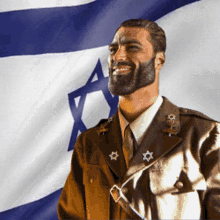
Learn about the different languages spoken in Israel!
The country of Israel has many different languages spoken by its people. Some of these languages include Arabic, Hebrew, Russian, English, French, Spanish, German, Italian, Portuguese, Polish, Hungarian, Romanian, Bulgarian, Turkish, Greek, Yiddish, Ladino, Judeo-Spanish, and Amharic.
Hebrew
Hebrew is the official language of Israel while Arabic is the second most common language spoken there. Both languages belong to the Semitic family of languages. Hebrew was originally spoken as a liturgical language by Jews living in ancient Israel. It became the primary language of the Jewish people after the Babylonian exile. Today, Hebrew is still used as an official language in Israel.
Arabic is also a member of the Semitic family of tongues. It originated in the Arabian Peninsula and spread throughout North Africa and parts of Europe. Today, Arabic is the official language of Saudi Arabia, Egypt, Syria, Jordan, Lebanon, Iraq, Yemen, Oman, Kuwait, Bahrain, Qatar, United Arab Emirates, Libya, Algeria, Tunisia, Morocco, Sudan, Somalia, Djibouti, Eritrea, Ethiopia, and Western Sahara.
Israel Languages And Their Speakers
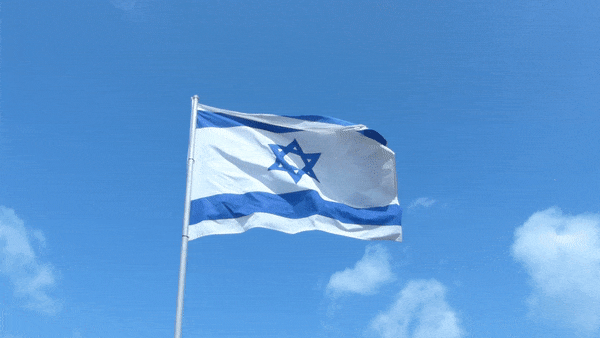
Israel has over 8 million residents who speak more than 100 languages. Find out what they’re saying!
Hebrew – The Official Language
In 1948, the United Nations General Assembly passed Resolution 181, which called for the establishment of two states within the British Mandate of Palestine: one Jewish state and one Arab state. This resolution was never implemented because of the outbreak of the Six Day War between Israel and its neighbors Egypt, Jordan, Syria, Lebanon, Iraq, and Saudi Arabia. On May 14, 1967, the Israeli army captured Jerusalem, and the following day, the UN Security Council adopted Resolution 242, calling for an end to hostilities and establishing a ceasefire line as a basis for future negotiations.
